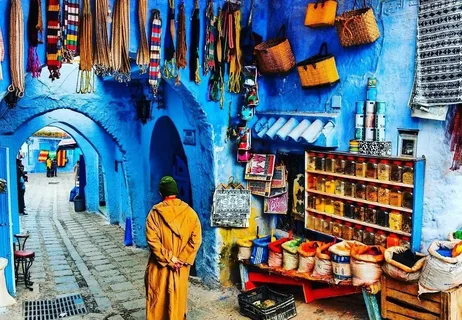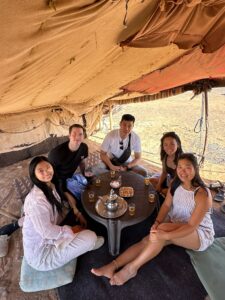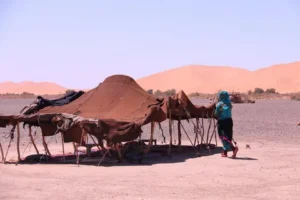BEST FAQ ABOUT TRAVLLING TO MOROCCO
best FAQ ABOUT TRAVLLING TO MOROCCO- Morocco is an incredible destination with its rich history, diverse culture, stunning landscapes, and warm hospitality. If you’re planning to visit, there are some important details to keep in mind to ensure a smooth and enjoyable trip. First, many nationalities don’t require a visa for stays of up to 90 days, but it’s essential to check your specific country’s entry requirements before departure. The best times to visit Morocco are during spring (March to May) and autumn (September to November), when the weather is mild and pleasant, ideal for sightseeing and outdoor activities.
Summer can be quite hot, especially in desert regions, so it’s advisable to plan accordingly. Safety in Morocco is generally good for tourists, but as with any destination, it’s always wise to stay alert, especially in crowded areas like souks or busy streets. Pickpocketing can happen, so securing your belongings is important. The official currency in Morocco is the Moroccan Dirham (MAD), and while major cities accept credit cards, cash is often needed for smaller transactions, particularly in markets or rural areas. ATMs are widely available, and exchanging currency is simple in larger towns. In terms of language, Arabic and Berber are the official languages,
but French is commonly spoken, and English is widely understood in tourist areas. Moroccan food is a major highlight, with dishes like tagine, couscous, and mint tea offering a taste of the country’s rich culinary traditions. It’s important to dress modestly, particularly in rural areas or religious sites, to respect local customs. While cities like Marrakech and Casablanca are more cosmopolitan,
rural areas may have more traditional dress codes. Comfortable shoes are a must as Morocco’s streets, particularly in old medinas, can be uneven and require walking. Finally, Morocco is known for its distinct regional culture, from the bustling souks of Marrakech to the quiet beauty of the Sahara Desert. Whether you’re exploring the Atlas Mountains, taking a camel ride in the desert, or enjoying the vibrant colors of Chefchaouen, Morocco offers a range of experiences. With these tips in mind, you’ll be ready to immerse yourself in the culture and beauty of Morocco, ensuring a truly unforgettable trip.
BEST FAQ ABOUT TRAVLLING TO MOROCCO
best FAQ ABOUT TRAVLLING TO MOROCCO-
1. Do I need a visa to visit Morocco?
Citizens of many countries, including the U.S., Canada, the UK, the EU, Australia, and New Zealand, can enter Morocco visa-free for up to 90 days. Check with the Moroccan embassy for specific requirements for your nationality.
2. What is the best time to visit Morocco?
Spring (March to May) and Fall (September to November) are ideal due to mild weather. Summers can be very hot, especially in inland areas like Marrakech and the Sahara Desert.
3. How do I get to Morocco?
best FAQ ABOUT TRAVLLING TO MOROCCO- Morocco is accessible by air with major airports in Casablanca, Marrakech, and Rabat. There are also ferries connecting Spain to Moroccan ports like Tangier.
4. Is it easy to travel within Morocco?
best FAQ ABOUT TRAVLLING TO MOROCCO- Yes, Morocco has an efficient train network connecting major cities like Casablanca, Marrakech, Rabat, and Fez. Buses, taxis, and car rentals are also available for regional travel.
5. Do I need vaccinations?
No specific vaccinations are required, but it’s recommended to have routine vaccines updated, along with Hepatitis A and Typhoid if you plan to travel to rural areas.
6. Is Morocco safe for tourists?
best FAQ ABOUT TRAVLLING TO MOROCCO- Morocco is generally safe, but like any destination, petty crimes like pickpocketing can occur. Exercise caution in crowded areas and keep an eye on your belongings.
7. What language is spoken in Morocco?
Arabic and Berber are the official languages. French is widely spoken, and English is becoming more common in tourist areas.
8. What should I wear?
Morocco is a conservative country. While you don’t need to wear traditional clothing, modest attire is appreciated, especially in rural areas and religious sites. In tourist-heavy cities, more casual attire is acceptable.
9. What is the local currency?
The Moroccan Dirham (MAD). Credit cards are widely accepted in hotels and larger restaurants, but cash is recommended for markets and smaller establishments.
10. Is Morocco expensive to visit?
Morocco offers a range of options for all budgets. Street food and budget accommodations are inexpensive, while luxury hotels and fine dining are also available.
11. What are must-visit places in Morocco?
– Marrakech (Jemaa el-Fnaa, souks, and gardens)
– Fez (Medina and Al Quaraouiyine University)
– Chefchaouen (the Blue City)
– Sahara Desert (camel trekking and camps)
– Casablanca (Hassan II Mosque)
– Essaouira (coastal town)
12. Are there any unique experiences in Morocco?
Hammams (Moroccan baths), henna art, cooking classes, and traditional music/dance performances.
13. What are popular Moroccan dishes?
Tagine, couscous, pastilla, and harira soup. Don’t miss Moroccan mint tea and fresh-squeezed orange juice!
14. Is it safe to drink tap water?
It’s recommended to drink bottled or filtered water.
15. Will my phone work in Morocco?
Check with your carrier for international roaming plans. Alternatively, you can buy a local SIM card (like Maroc Telecom or Orange) for affordable data and calls.
16. Is Wi-Fi widely available?
Yes, most hotels, cafes, and restaurants offer free Wi-Fi.
17. What are popular items to buy in Morocco?
Rugs, pottery, leather goods, argan oil, spices, and lanterns.
18. Can I haggle in markets?
Yes, bargaining is part of the culture in souks. Start low and meet somewhere in the middle.
BEST FAQ ABOUT TRAVLLING TO MOROCCO






